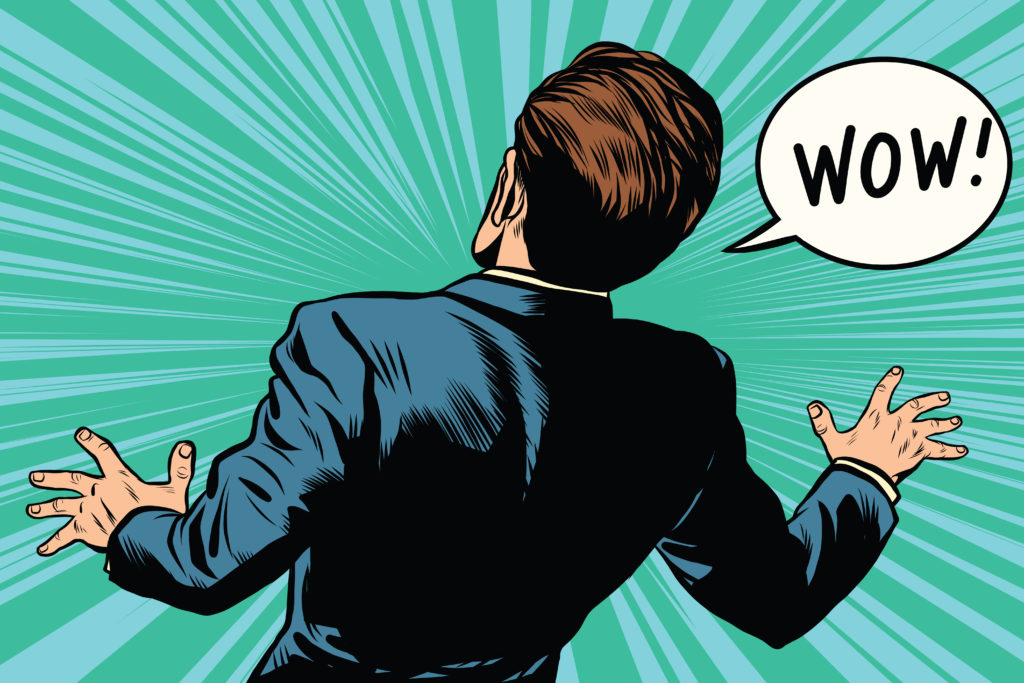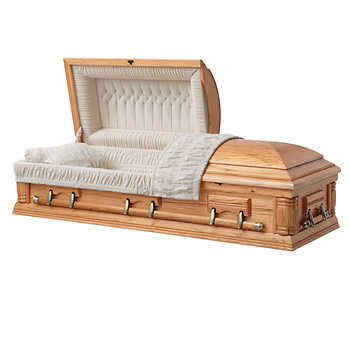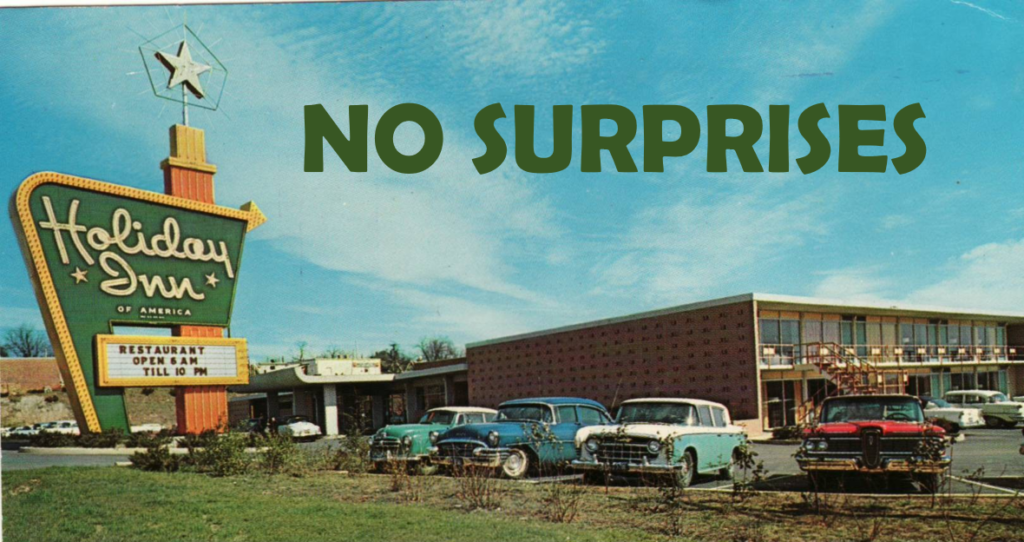
One of my little joys is the every-other-week trip to Costco. I’m not a shopper. In fact, I’m known for my “1 store alarm.” (After I’m in most retail establishments for just a few minutes, “the alarm goes off,” and it’s time to move on to another store.)
But at Costco, I’m mesmerized by the items they carry, the odd disorganization of the place (and yet, it somehow makes sense), the $1.50 hot dogs, and cheap gas.
You have to give them credit for consistency and uniqueness. Costco is different from most stores, and it’s not just because they sell relish in bulk. More and more, you get the sense you can buy pretty much anything from Costco.
The thing about Costco is that it always has little surprises – the wow factor. Sometimes they even feel “programmed in,” like the way we’d slip in a spice track at rock stations back in the day.
And then I ran across this article in Business Insider: “These are the most surprising things you can buy at Costco.” Writer Kate Taylor compiled a list of 7 rather odd items you won’t run across in your basic grocery store or farmers’ market. My favorites?
Engagement rings
Who knew? You can pay more than $100,000 for a ring or as low as $780. Imagine being able to buy the symbol of upcoming matrimony while you also shop for toilet paper, a big screen TV, and grab a slice of pizza. That’s Costco.
Survival kits
But not just for a week or so. Costco carries disaster kits with enough food and supplies to keep a family of four fed for a year. As the threat of nuclear war and hurricanes looms larger with each passing year, Costco’s kits range in price from $1,000 to $6,000.
As the website notes, “Enjoy the comfort in knowing you have the essential foods your family will need to survive an emergency or natural disaster.”
Coffins & caskets
This one’s my favorite. Ranging in price from $950 to $3,000, it turns out Costco stocks a variety of funeral goods (apparently not the services – yet), including urns. For people on a budget who don’t want to mess with the high cost of funeral homes, this surprising item is well-reviewed by other Costco shoppers.
The Dayton model is pictured at right.
You can laugh at these quirky specialty items, but they’re precisely what makes shopping at Costco an adventure. On the one hand, you know what you’re going to get. On the other, you’ll also be surprised once or twice on most visits.
The Costco experience reminded me of something NPR CEO Jarl Mohn mentioned to me the other night while we sat next to each other at a Talk Show Boot Camp dinner.
When he worked at MTV, Jarl was assigned the task of rejuvenating the MTV Video Music Awards, a show that was flagging in the ratings. As we know from watching the low-rated Oscars a couple of weeks back, programming an entertaining awards show is a challenge.
Jarl’s first move was to hire young producer Joel Gallen and give him the reins. But Gallen was charged with one key goal:
“Program a surprise in every 20 minutes.”
Starting in 1989 when Gallen starting producing the show, the ratings turned around. And a big part of the reason was that you never knew exactly what to expect from the VMAs. But you knew there would be a surprise…or three…as the evening wore on.
From Fartman (yes, Howard Stern) to the Britney Spears-Madonna kiss, you never knew quite what would happen on the show. And that was the point. Unlike “setting occasions” like we do every day in radio, the VMAs were programmed to surprise – and the audience knew it. That’s what kept them tuned in for the entire show.
Radio programmers can bake in “surprises” that aren’t tune-outs or even inconsistent with their formats. So can personality shows. But it takes effort, imagination, and the desire to create those “oh wow” moments people will talk about long after the show is over.
And today, other station assets – the website, the mobile app, the Alexa skill, and social media can be used as “surprise sources” for programmers leery about too many “oh wow” moments on the air.
Most of broadcast radio’s key digital competitors, like Spotify and Pandora, frequently lack the element of surprise. In focus group after focus group, respondents have told me they may have thousands of songs in their personal music collections. And they’re sick of them all.
That’s why many people continue to tune to FM radio stations – when someone else is curating the music or producing a morning show, you just don’t know what’s coming up next.
Holiday Inn used to have a slogan, “No Surprises.” It symbolized the notion that you always know you’ll have a dependable experience when you  stayed there. And when you’re booking an inexpensive hotel, that’s the hope. Of course, you never tell others about your incident-free stay.
stayed there. And when you’re booking an inexpensive hotel, that’s the hope. Of course, you never tell others about your incident-free stay.
But when you spend a couple nights in a Four Seasons, a Ritz Carlton, or a boutique hotel, staffers are often instructed to surprise guests with unexpectedly wonderful service – the kind of things people talk about online and to one another.
It’s those “Purple Cow” moments we remember and share.
Surprise – it’s the element that will keep audiences coming back for more.
- What To Do If Your Radio Station Goes Through A Midlife Crisis - April 25, 2025
- A 2020 Lesson?It Could All Be Gone In A Flash - April 24, 2025
- How AI Can Give Radio Personalities More…PERSONALITY - April 23, 2025




Love it Fred! Exactly what I’ve been working on here in Philly.
Better connection through better curation. Thanks as always.
Appreciate the comment, Chuck.
Why is there a coffin named after Dayton? I live and work in Dayton. It ain’t all that bad.
I wondered that, too. At least it wasn’t named “The Detroit.” Maybe you should contact Costco.
Everything old is………
Indeed.
It goes way back…formats that don’t allow for “surprises”. We convinced our programming selves that knowing what to expect was comfortable and reassuring. And, it often was. But knowing what to expect over the long haul can also be boring as hell. Connection whether between station and listener
or between elements of content and its presentation is easily lost.
I think you’re right, Bob. And I think the more “perfect” you are, the more predictable and boring you become. The balancing act is keeping it fresh and interesting, withrout driving it off the side of the road. Larry Berger, former great PD with ABC (WPLJ among others) used to call it “logged spontaneity.” I always like that as a term and an operating philosophy. Thanks for the comment.